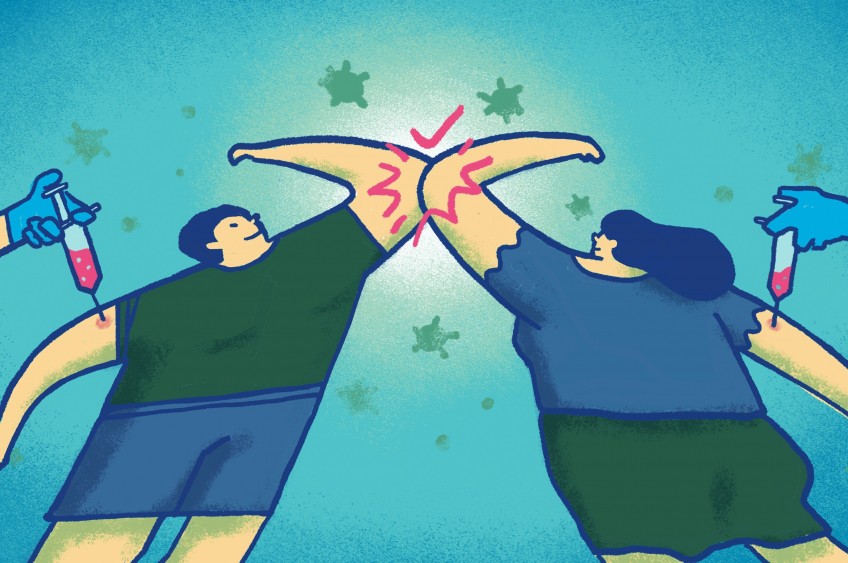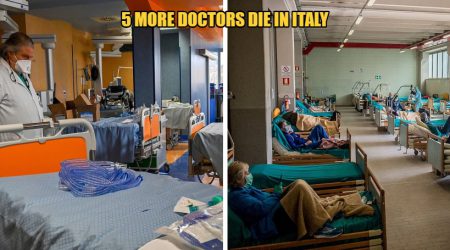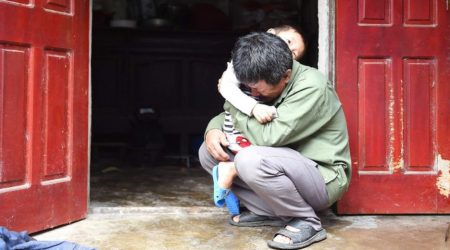Coronavirus vaccine will not be a magic bullet, scientists warn

Health experts fear expectations for a Covid-19 vaccine may be too high, as producers announce delivery timelines for hundreds of millions of doses and countries lay down billions of dollars hoping to have first pick of a product that can put a swift end to the pandemic.
But no vaccine for the disease caused by the new coronavirus has yet proven effective and World Health Organisation director general Tedros Adhanom Ghebreyesus warned this week that “there is no silver bullet at the moment and there might never be”.
Experts say there is still a long way to go before we know if any of the experimental vaccines will be effective, and longer still before any approved products are distributed around the world to offer a shot at global herd immunity .
There are also many unknowns about the impact of any approved vaccines on the virus and whether they can stop transmission and, ultimately, the pandemic.
“Every attempt to make a vaccine is like a blind trial and error procedure in which you might succeed early in the process and you might not succeed even late in the process,” said David Morens, senior adviser to Dr Anthony Fauci, head of the US National Institute of Allergies and Infectious Diseases.
“We are all hopeful that we will get it right the first time and that within six to 12 months we will have a vaccine and bring it to market. That is possible, but it would take a lot of luck.”
Vaccinologist Jon Andrus, an adjunct professor of global health at George Washington University’s Milken Institute School of Public Health in the US, said development of an effective vaccine was not a sure shot.
“It’s dangerous for us to be putting all of our eggs in one basket – that a vaccine will become available and this is going to save the day – and forget to remain focused on what we should be doing this very moment,” he said.
That included widespread testing, case identification and tracing, wearing masks, maintaining hygiene and social distancing, said Andrus, a former deputy director of the Pan American Health Organisation, the WHO’s regional office in the Americas.
More than two dozen experimental vaccines are in human trials, and six of those candidates have advanced into large-scale phase 3 trials – the first opportunity for scientists to actually figure out if they are effective in preventing people from getting infected.
There are several reasons for optimism among scientists. For one thing, unlike HIV – which does not leave the body once it is infected – Covid-19 can be cleared from the system by a natural immune response, indicating that the right vaccines could do the same.
Several candidates in early clinical trials induced both neutralising antibodies – molecules which can attach to the spikes on the virus and stop it from entering human cells – and T-cells, which play a central role in the body’s immune response and may be important in the long-term defence against the disease.
In theory, these are signs that vaccines could be effective in countering the new coronavirus but, until these defences are tested in phase 3 trials, nothing is known, experts say, and success itself is on a sliding scale when it comes to producing a Covid-19 vaccine.
“We don’t really know whether a vaccine will control a particular pathogen until we go to [phase 3] trials. You can use immunology tools to help you measure and monitor, so if you succeed or if you fail, you can say this parameter was useful or not useful – but not before the efficacy trial,” said vaccinologist Lu Shan, a professor at the University of Massachusetts medical school.
Vaccines that make it from the phase 3 trials to evaluation by regulators may also have a range of results.
“Vaccine efficacy is a spectrum of numbers … the question is, are you happy with 30 per cent vaccine efficacy or are you only happy if it has 90 per cent? Are you trying to prevent severe cases, disease development, or are you trying to prevent minor infection?” said Lu, who is developing a US National Institutes of Health-funded HIV vaccine.
John Donnelly, principal at US-based Vaccinology Consulting, said that, depending on what kind of protection was provided by the early vaccines, public health measures may have to continue for “some period of time” until further advancements were made.
“It may not be simply a matter of distributing the vaccine and going back to doing everything the way that we did it before,” he said.
Questions have also been raised about how long immunity provided by vaccines may last . Several studies have noted that the neutralising antibodies present in people who had recovered from the virus significantly reduced after a few months.
It is also unknown whether Covid-19 can only be caught once. There are four coronaviruses regularly circulating among humans that present as the common cold. It is thought that all of these can be re-caught by people, and there are concerns there may be a similar phenomenon with the novel coronavirus, especially months or even years after infection.
Scientists say it is possible that, as with some other vaccines, people may need booster shots after a period of time to maintain immunity. But even if that period is short, a vaccine could still be useful, Morens said. “Even an imperfect vaccine, if widely used, might slow things down to limit infections and buy time to develop better drugs or vaccines.”
Other experts say that vaccines will be unlikely to work in the same way as the body’s natural immune system.
“We have ways of manipulating vaccines so that you can get sustained immunity and sustained antibody responses, so I don’t think the fear of the neutralising antibody diminishing very, very quickly needs to be carried over into the vaccine arena,” said Joanna Kirman, an associate professor in the department of microbiology and immunology at the University of Otago in New Zealand.
Instead, Kirman pointed to another wild card in the role that a future vaccine could play in turning the tide of the pandemic: how many people are vaccinated.
A vaccine ideally works by protecting a person from becoming infected by a pathogen. The more people that are immunised, the harder it is for that pathogen to spread in a community, reducing infection risk and increasing protection for everyone.
Part of the challenge with any Covid-19 vaccine will be a sheer numbers game. Despite early efforts to ramp up manufacturing capability, there are likely to be shortages for months or years, depending on which candidates are successful.
Supplies will become more stretched if two doses are needed per immunisation, or boosters after a shorter stretch of time.
Then there is vaccine hesitancy – people with access who choose not to take the shot, perhaps over safety concerns or a lack of trust in science or government. A May poll by the Associated Press-NORC Centre for Public Affairs Research found only about half of Americans were prepared to get the vaccine. And this hesitancy is not limited to the US.
“The biggest challenge is getting sufficient people vaccinated to induce herd immunity, and in some countries it’s probably not going to be a problem and in others it’s going to be a huge problem,” Kirman said.
The threshold for herd immunity – when enough people are immune to the disease that others are shielded – is usually pitched at 60 to 70 per cent to be effective in significantly slowing transmission. But some experts, in looking at how widespread and contagious Covid-19 is proving to be, suggest much higher figures.
“We’ll need more than 80 per cent coverage, maybe 95 per cent if countries in the meantime can’t get their numbers down,” said University of New South Wales professor Mary-Louise McLaws, who is advising the WHO’s Covid-19 response.
Kirman agrees the number for “robust herd immunity” will be in the 90s.
The virus will continue to circulate if enough people are not vaccinated which could open up another problem, apart from the ongoing risk of the disease. So far, the new coronavirus has been genetically relatively stable, but that could change over time.
If immunisation was not widespread or differed between countries, “down the track, mutated forms of the virus may actually pose challenges if different strains capable of escaping vaccine control emerge”, said Damian Purcell, head of the molecular virology laboratory at the Peter Doherty Institute for Infection and Immunity at the University of Melbourne.
Most experts are optimistic that vaccines can be developed to provide some level of protection against Covid-19, and that they will be improved with further advancements. But they stress that all the variables underline the importance of focusing on the disease control measures we already have.
Testing and tracing, frequent handwashing, mask-wearing and social distancing will all likely need to be maintained, while vaccines are being rolled out, they say.
“The biggest takeaway is that people need to be diligent about doing the things that the health authorities have recommended them to do to reduce the spread of this virus,” Donnelly said.
“If you don’t do that, technology [like vaccines] may prove to be disappointing, if you do that and are effective, then technology could be a very important tool to complete control of the infection.”
his article was first published in South China Morning Post.












Leave a Reply